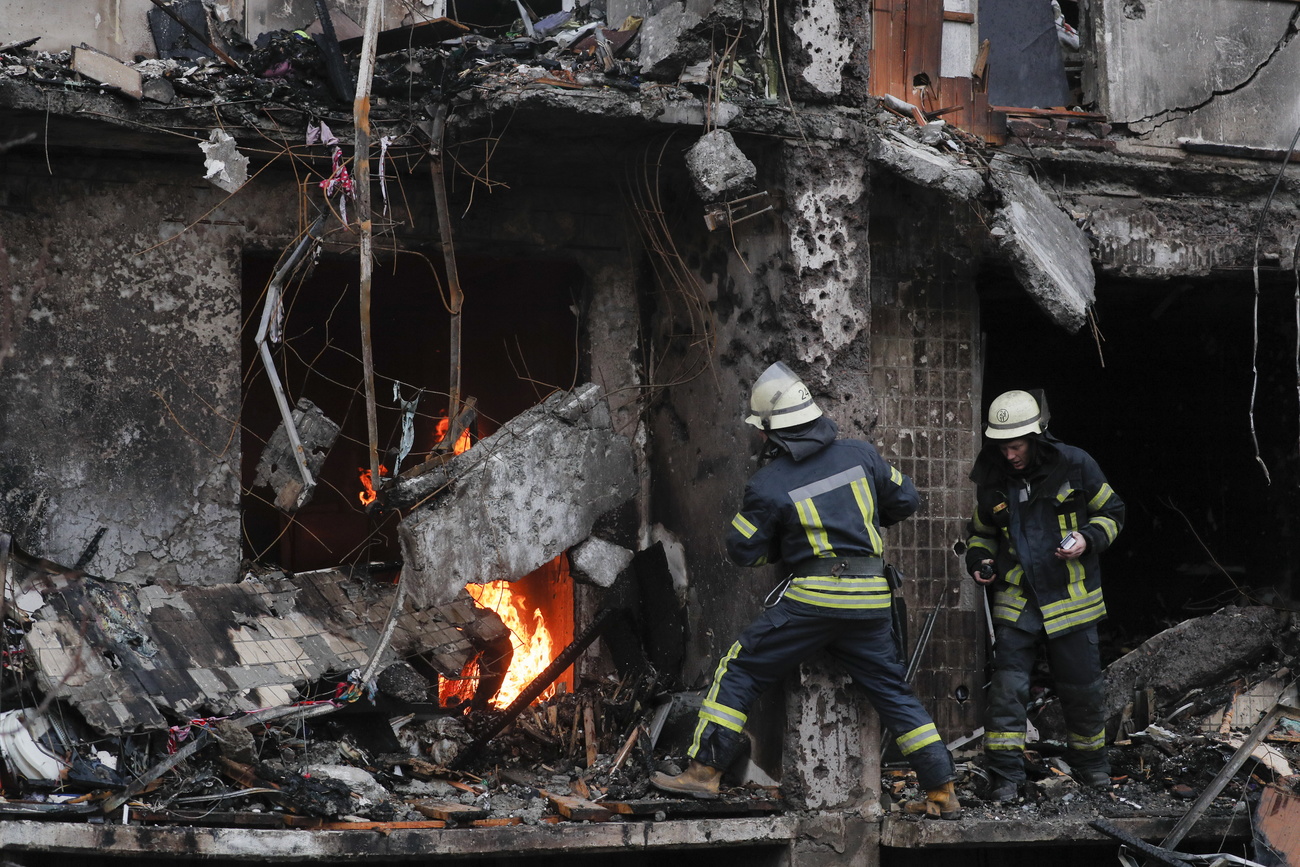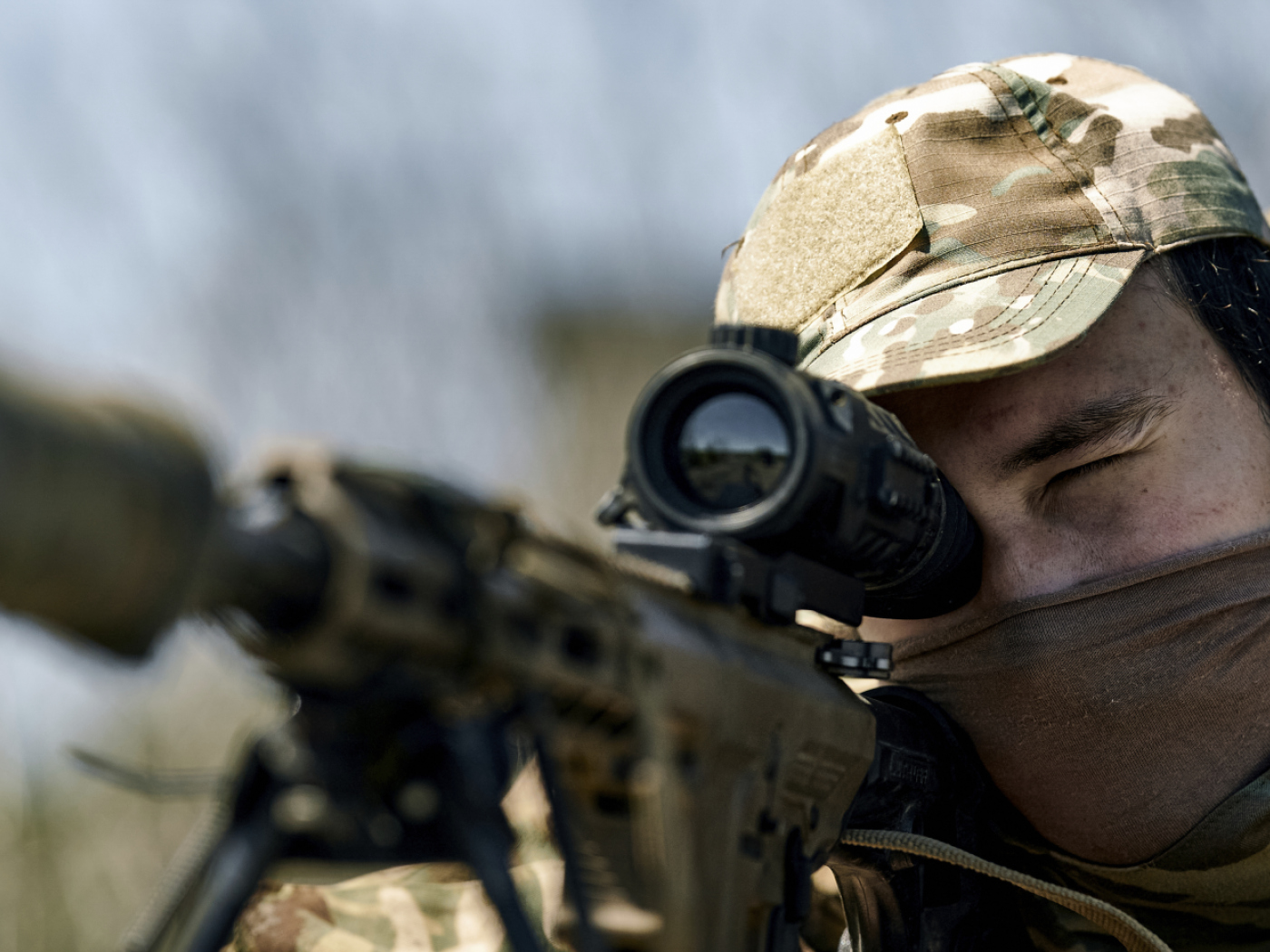
Switzerland Today
Hello from Bern,
As elsewhere in the world, news in Switzerland this week has been dominated by the Ukraine conflict, and Friday was no different.

In the news: Swiss scale back embassy in Kyiv, and the country presents its latest EU strategy.
- Switzerland has partially evacuated its embassy in Kyiv as Russian forces close in on the Ukrainian capital. Only six or seven staff remain, the minimum for it to function, Foreign Minister Ignazio Cassis said today. With the embassy building closed to the public, Swiss nationals caught in Ukraine have been advised to use a foreign ministry helplineExternal link if they need assistance. Some 200 Swiss citizens live in the country.
- Switzerland has again affirmed its preference for renegotiated bilateral and sectoral deals with the EU, rather than an overarching treaty. Talks on a larger framework deal broke down in May last year after domestic wrangling in Switzerland about ceding too much sovereignty to Brussels. The “bilateral” approach could also leave the door open to the Alpine nation continuing to pay so-called “cohesion” funds to poorer EU states, government ministers said today.
- The Bührle Foundation and the Kunsthaus museum in Zurich have signed a new contract to regulate the loan of some 203 artworks from the controversial collection of wartime arms manufacturer Emil Bührle. The works, currently on display, have been the source of much debate about how to handle artworks linked to Nazi looting. The new contract aims to bring more clarity to the paintings’ provenance, as well as present this more transparently to the public.

Ukraine, the UN security council, and neutrality: debates about Switzerland’s international role.
Yesterday, we reported how Bern would not impose unilateral sanctions on Russia, but rather would try to ensure Switzerland would not be used as a back-door to get around EU measures. After a confused press conference at which officials struggled to explain the technicalities and semantics of the decision, many were critical, including political parties on the left, who today presented a 20,000-strong petition calling for strong sanctions. And while the government today clarified that it would take certain actionExternal link against the individuals blacklisted by the EU, there was still no move to follow the EU sanctions automatically.
Swiss President and Foreign Minister Ignazio Cassis (photo above) defended the stance on Friday. While he understands “emotionally” the wish of many to see harsh action taken, Switzerland’s neutral role allows it to bring an “added-value” to the international stage, Cassis said. This role is not only recognised but indeed “accepted” and “desired” by other nations, he claimed, mentioning the protecting power mandate the Swiss took on between Russia and Georgia after their 2008 conflict. “Our position, and above all my goal, is to leave the doors open so that we can do what most other countries can no longer do – keep channels open between countries that no longer have diplomatic relations,” Cassis said.
But debates about the modern place of neutrality continue, and also today, the question of the Swiss candidacy for a seat on the UN Security Council came up again. The right-wing People’s Party – one of the strongest defenders of classical Swiss neutrality – held a press conference to reiterate their opposition to the seat. They say the country should prioritise its role as an impartial mediator rather than join a body in which it will have to take sides. “Switzerland does more for peace with its good offices than with a seat on the Security Council, which decides about war and peace,” People’s Party boss Marco Chiesa said.
How successful will their call be? The group was already shot down heavily in parliament in 2020 when it raised the issue. A 2015 reportExternal link by the government stated that a Security Council seat is fully compatible with neutrality. And although the global security situation has changed dramatically in the last days, Cassis said on Friday that the government’s position on this question has not. Today’s Le Tempseven reckonsExternal linkthe current instability could boost the Swiss candidacy by shoring up support on the left and the centre-right. Another debate is to take place in parliament on March 10; the vote in the UN is set for June 9. If successful, Switzerland will take its seat from 2023-2024.
For more background: What Switzerland can bring to the UN Security Council; what it can get from it; and the view of former foreign minister Micheline Calmy-Rey.
More

Learning to ski: it’s never too late, and what better place than right under the Matterhorn…
After a historic week elsewhere, life will go on much as normal for many in the Swiss Alps this weekend, with good weather likely to attract many to the slopes. Earlier this week, the Wall Street Journal was also there, in Zermatt, where its writer was trying to learn to ski for the first time since a brief effort in the 1980s. How did she get on? Having moved from terror (day one) to hatred (day two), to a sort of amazed pride at being able to do it (day three) and satisfaction with the après-ski (every day, presumably), the writer finished with a fall and a bruised hand (day nine), although she has already and cheerily booked another ski holiday for next year. If you still have ambitions to learn how to ski as an adult, here is her reportExternal link.

In compliance with the JTI standards
More: SWI swissinfo.ch certified by the Journalism Trust Initiative








